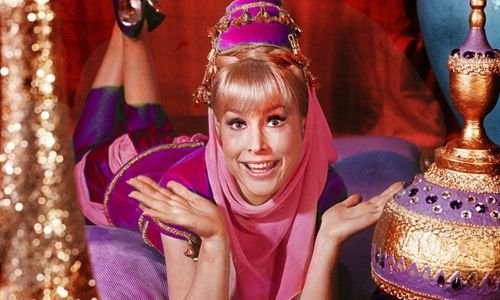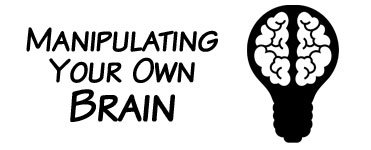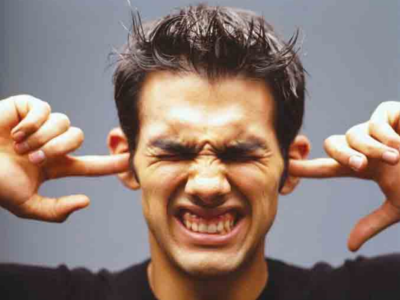One of my favorite movies growing up was Back to the Future. In it, Doc Brown tells Marty, “If you put your mind to it, you can accomplish anything.” There is a clear theme of optimism here, and a message that positive thinking has potency and value. Hell, the doc created a time machine, so surely anything IS possible!

Source
I’d like to think that the message and the movie had a positive impact on me. Around the same time in my life, my father gave me a set of tapes about positive thinking. The gist was, take the word “can’t” out of your vocabulary. The further gist was, positive self-talk is more effective than negative self-talk. Pretty reasonable advice, as long as you keep it within the bounds of reality.
I say all this to acknowledge that the idea of positivity has been around for a while and that I’m not antagonistic to the concept. In recent years, however, I’ve noticed a disturbing mutation in the meme. Whereas Doc told Marty that you get good results if you put in the thought and the work, the current gospel of positivity claims that wishes become reality solely because of the wish.

Source
There is such a swirl of confusion and willful ignorance surrounding this idea that it drives me a little crazy. So hang on tight: we’re going for a rant.

First, a question: do you believe in a God who can and does manipulate reality for your benefit? If your answer to this question is yes, then PLEASE STOP READING.

Source
Are all the spiritual narcissists gone? Yes? Okay, good, because I have no intention of arguing people out of their gods. But have no fear, intrepid reader! Even if we take God out of the equation, this leaves plenty of room for ambiguity and confusion.
Before I attempt to demolish anyone’s cherished beliefs, I want to take a look at how a positive attitude IS powerful. As far as I can tell, this breaks down into two categories: how it affects your brain, and how it affects the brains of others.

Action often depends on believing in that action’s effectiveness. In many instances, we’re not consciously aware of this fact. If you want to cross the street, you put one foot in front of the other and you walk, because you know that with each step you’ll get a little closer without falling down. This is not something you think about. You know it’s true based on a lifetime of experience, and it’s automatic. Unless you’ve recently fractured your leg, there’s no reason to doubt it.
Other actions and choices aren’t so obvious, and these are the instances where conscious thought comes into play.
Thinking about asking that cute girl for her number? If you feel
certain you’ll be rejected, you won’t make a move. If you believe
she’ll react positively, you’re more likely to approach.Want to lose some pounds and need to go on a diet? If you
believe skipping a doughnut will get a definitive result, you’ll
eat a carrot instead. If you don't think one doughnut will
make a difference, you’re more likely to chow down in a series
of compounding results.Have a business idea that will allow you to quit your day-job? You
won’t devote the time and energy necessary to success if you don’t
first believe that success is probable.
According to Daniel Kahneman in Thinking, Fast and Slow:
The chances that a small business will survive for five years in the United States are about 35%. But the individuals who open such businesses do not believe that the statistics apply to them.
This means that optimism does not guarantee success. But it also means that action - certainly new action - is not possible without a certain degree of optimism. Without a positive attitude, you’ll never be able to overcome the hump of inertia to act.

Apart from affecting your own brain, a positive attitude also affects the brains of others. And by affecting those other brains, you’re more likely to have successful endeavors.
Going back to the small business idea, if you approach people with an attitude of negativity and despair, they’ll take your word for it. They won’t respond to your products and ideas, they'll smell failure, and your business will go belly-up. Alternatively, if you approach others bubbling with optimism and positivity, they’re more likely to believe in its success, and they’ll help it grow. (Unless you're really creepy about it.)
Perhaps more important than in any specific example, your attitude and actions play a large role in how people react to you. Here too, a positive attitude affects the brains of everyone in your social circle - whether family, friends, co-workers or social media folks. We call this effect “reputation”. Common sense: if you’re a dick, people will think of you like a dick and treat you like a dick; if you’re friendly and helpful, most people will return that friendliness. A positive attitude will attract positivity; a negative attitude will attract negative results.
Jesus! I sound like a squishy self-help author!

Source
This is where the confusion comes in, and where we run into a bunch of mixed-up, crazy ideas. So let’s take a look.

Based on what I wrote above, it should be clear that optimism is valuable. A positive attitude, at least to some degree, is necessary for success and happiness. That being said, optimism does not guarantee success. Stubborn optimism divorced from reality can lead to serious losses - whether actual or through opportunity cost.
Daniel Kahneman again:
One of the benefits of an optimistic temperament is that it encourages persistence in the face of obstacles. But persistence can be costly. An impressive series of studies by Thomas Astebro sheds light on what happens when optimists receive bad news… 47% of [inventors] continued development efforts even after being told that their project was hopeless, and on average these persistent (or obstinate) individuals doubled their initial losses before giving up.
What does this mean? It means that answers are complex, and truth is hard. There is no silver bullet for success - not even a positive attitude.
But of course we want that simple, reassuring answer. And that’s where the New Age fluffers come in: Believe it, and it will come.

Source
“A positive attitude will attract positivity; a negative attitude will attract negative results.” These magical optimists say pretty much the same thing as I did in the paragraph above. However, they are not referring to one’s effect on the brains of other conscious beings. They claim that your thoughts and beliefs have a direct effect on how the universe interacts with the believer.
Now, much of what they say is muddled and murky. I don’t know if that’s a bug or if it’s a feature. And while the authors of these books often lack clarity of thought, their readers appear to be even more averse to any exercise in definitive analysis.
So let’s do that analysis right here and now.

This post was inspired by a text conversation that my sister and I had last week. She is reading a book by one of these New Age “positivists”, and she sent me a screenshot of one of the pages (to show the reason for her creeping doubt, much to her credit). On this page, the author illustrates the power of positive thinking by claiming that she always gets great parking.
!!!!! → PARKING ← !!!!!
This author says that every time she pulls into a parking lot, she imagines her great parking spot, and she always finds one without fail. Her positive thought is a cause of her finding a good parking spot.
Are we to believe that the author actually believes this? I don’t know. But I do know that most of us gloss over clear thinking when we want to hold onto beliefs that won’t pass the test of reason. In any event, her readers seem to believe it; and I can’t help but think of Wiley Coyote as he refuses to look down, so as not to fall off the cliff’s edge he’s already overstepped.

Source
So let’s break this down: you’re about to park your car at Dodgers Stadium for game four of the World Series, and the game starts in five minutes. Time is of the essence. You really want to get that sweet parking spot so you can get into the stands and into your seat as quickly as you can. So you close your eyes, and you ask the universe for good parking. You give it all your focus and energy. You’ve never wished a wish so well. You’ve never believed a belief so blindly.
What does success look like?
Let’s set aside luck - as in, there just happens to be a good spot available - because I think we’d all agree that luck or chance is not dependent on any goodwill of the universe. So for your wish to be truly potent, we must assume that all good parking spaces were filled as you were pulling into the lot, but your wish or belief caused a spot to be opened. So what does the universe do?
Well, the universe could always make a car disappear. That would be effective. Though, presumably, it would conflict rather strongly with the positive belief of the disappeared car’s owner, who still believes in the existence of his car and where he parked it… I suppose if your wish was really a doozy, the Universe could make a car disappear, and then make the car’s owner disbelieve in the existence of his car... but I think you’ll agree we’re getting a little convoluted.
Instead, the Universe could expand the size of the parking lot and add an extra space. But if that starts happening too much, people are going to notice the creep as parking lots everywhere (especially in LA) get larger and larger…
The Universe could implant an idea in another Dodgers fan’s head, prompting him to race outside and move his car. And if mind control is a little too scary, maybe the Universe just sends a text to accomplish the same action…
Okay. Clearly, this idea is insane.
So why do people believe it? One answer would be that people do not believe it. And in one sense, that’s true. But only in the sense that people rarely analyze their beliefs.

Source
Though it’s true that most people would deny that the universe disappears cars because of their wishes, many believe that their positive belief or “energy” will cause the universe to deliver positive things, i.e., shit they want. And it is only their refusal to clearly analyze this belief that makes it any different from the parking space pipe-dream above.
You might recognize something familiar in this mode of thought. Perhaps you’ve heard of a thing called “prayer”. Yes, clearly this belief in magical optimism is the bastard-grandchild of religious faith and prayer.
See Matthew 17:20
I tell you the truth, if you had faith even as small as a mustard seed, you could say to this mountain, 'Move from here to there,' and it would move. Nothing would be impossible.
While I do not believe in a god, at least under a theistic umbrella this thinking makes a certain kind of sense. You’ve got a god - an all-powerful locus of agency and consciousness - that will move the mountain for you, so long as you believe. But these squishy New-Agers don’t even have that! It’s like throwing out the baby and keeping the bath water!

Source
Okay, rant over.
In closing, optimism is valuable, but it’s not a fix-all. It’s a potent tool in motivating and manipulating conscious beings - whether that be you, or those around you. But the universe is not a conscious being. Apart from the brains living and perceiving within it, reality is just a swirl of apathetic matter and energy that doesn’t even know you exist.

Source
This is the first (really the second) in a series of posts where I will rant about my frustrations regarding philosophy, psychology, or politics. Let me know if it’s been valuable and whether you’d like to see more! And I’d love to continue the discussion in the comments.
